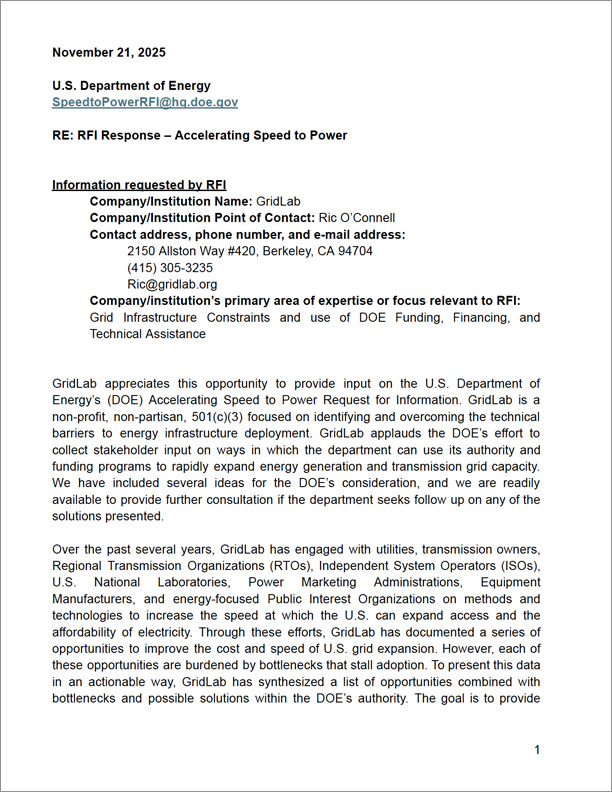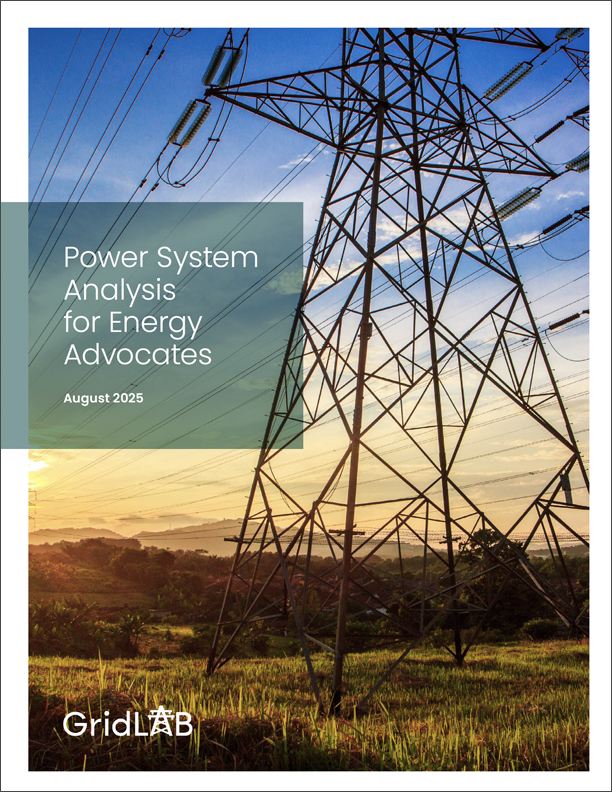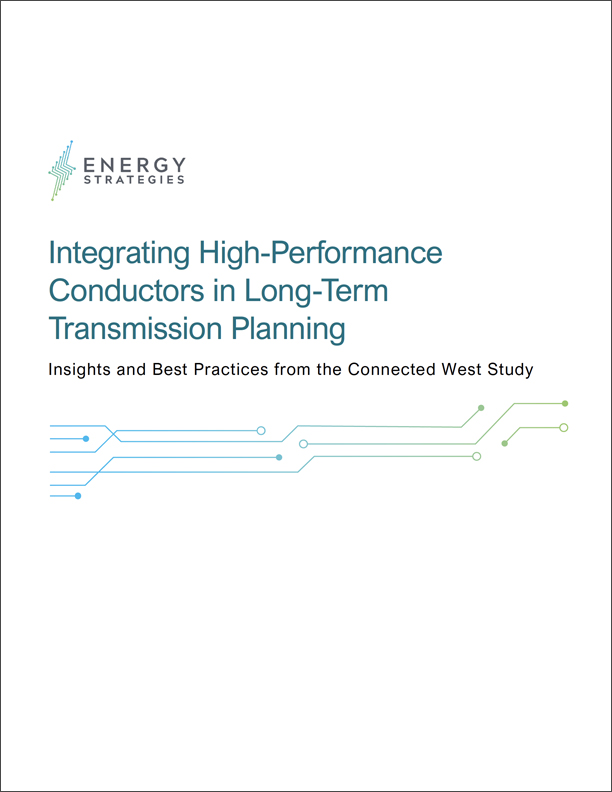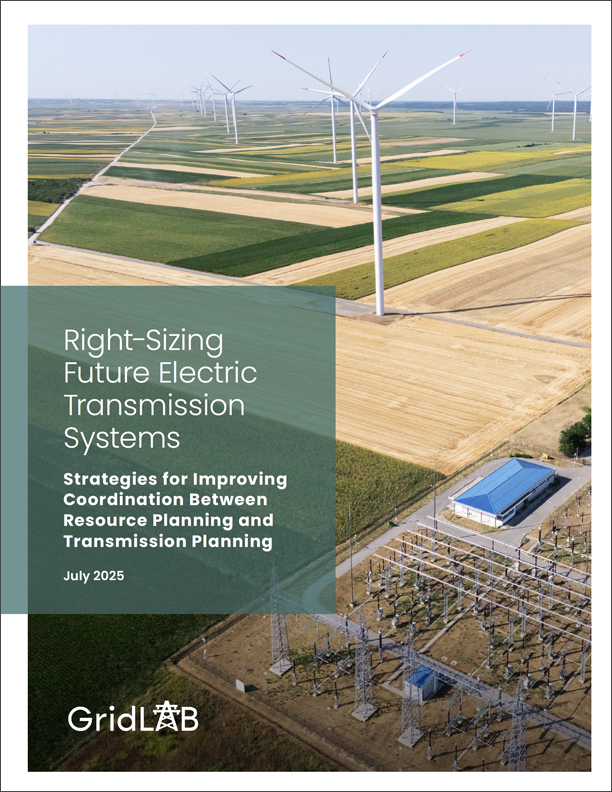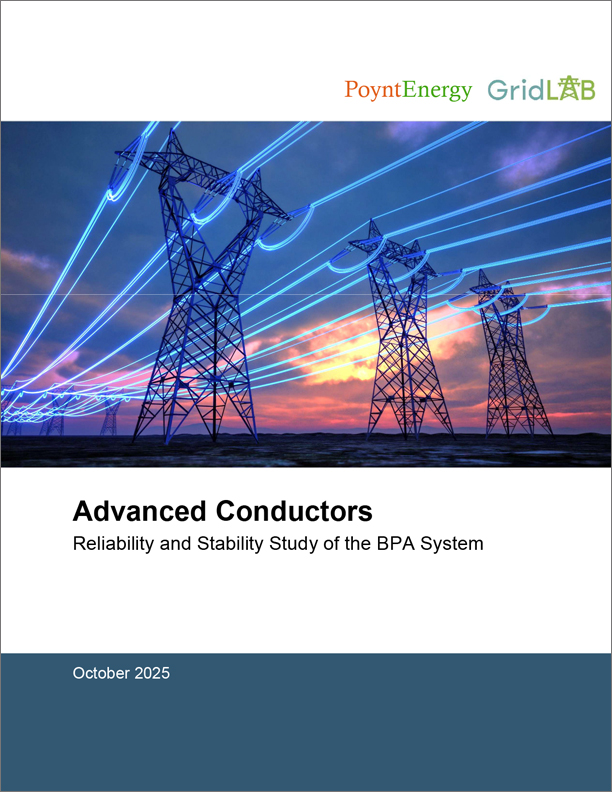GridLab RFI Response – Accelerating Speed to Power
GridLab appreciates this opportunity to provide input on the U.S. Department of Energy’s (DOE) Accelerating Speed to Power Request for Information. GridLab is a non-profit, non-partisan, 501(c)(3) focused on identifying and overcoming the technical barriers to energy infrastructure deployment. GridLab...
Power System Analysis for Advocacy
Transmission expansion can unlock new lower cost generation, increase system reliability, and reduce pollution. For this reason, it is important for energy advocates of all types to understand and engage in their region’s transmission planning process...
Integrating High-Performance Conductors in Long-Term Transmission Planning
In 2024, Energy Strategies, in partnership with GridWorks and GridLab, completed the Connected West study, an unprecedented long-term western US transmission plan based on high load growth and high energy system decarbonization. One of the scenarios tested in this study...
Right-Sizing Future Electric Transmission Systems
To face this pivotal moment in our energy history energy system planners and regulators need to better synthesize the worlds of electric generation and transmission. This report, "Right-Sizing Future Electric Transmission Systems," highlights that while unprecedented expansion will be necessary...
BPA Advanced Conductors
This report provides a novel methodology for planning regional transmission system upgrades using advanced conductors (ACs) and evaluates their impact on the Bonneville Power Administration (BPA) transmission system's reliability and stability. The study highlights that reconductoring existing lines with ACs...
Sylvan and GridLab_Renewables Transmission Rights
The practice of requiring long-term firm point-to-point transmission rights for new generators in the Pacific Northwest traditionally supported reliability for utilities that rely on BPA transmission, but has not adapted well to an environment with increasing penetrations of renewable resources....
Grid-Forming Battery Energy Storage Systems; Brief for Decisionmakers
Grid-Forming (GFM) Inverters GFM have received a lot of attention recently in power system organizations including NERC. The technology promises to address many of the stability issues facing the transmission system as the resource mix moves from spinning assets to...
Transmission Reliability Impacts of Retiring Conventional Generation
This report describes the transmission system reliability risks associated with the retirement of synchronous generators, such as coal and natural gas plants, and the shift towards inverter-based resources like solar PV and battery energy storage systems (BESS). It highlights the...
Surplus Interconnection Report
Surplus interconnection refers to the practice of allowing new electricity supply resources to connect to the grid using the same interconnection rights that have already been allocated to existing generators.7 As outlined in the Surplus Interconnection Technical Whitepaper, hundreds of...
Surplus Interconnection Service
The U.S. electric grid is facing a triple threat of rising rates, rapid demand growth, and increasing reliability risks. These issues have wide ranging impacts on the future of America’s economic growth, industrial competitiveness, and national defense. Meanwhile, there remain...
